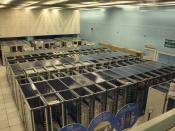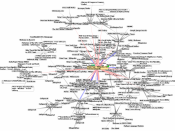With the rapid growth of the computing industry over the last fifty years, many obstacles have arose and been brought to the attention of people involved in the computing world. These were things such as people's personal data accessed against their will, software copyright theft and various offensive or unlawful materials published on the Internet.
With these various activities being carried out more and more as the computing industry grew the governments around the world made reviews of the fairness and morality of the laws in computing and made several legislations to be followed when using computers. These were things such as: -
The Data Protection Act
The Computer Misuse Act
Software Copyright Laws
The Defamation Act
The Obscene Publication Act
The following paragraphs describe these in a bit more detail.
Data Protection Act of 1998
The 1998 Data Protection Act came into force early in 1999 and covers how information about living identifiable persons is used.
It is much broader in scope than the earlier 1984 act, but does contain provision for a transitional period to comply with the new requirements. The Act itself, of course, is mandatory. All organisations that hold or process personal data must comply. The problem is, of course, how to ensure full compliance across the enterprise.
The Data Protection Act contains eight Data Protection Principles. These are (and I quote): -
1. Personal data shall be processed fairly and lawfully and, in particular, shall not be processed unless -
at least one of the conditions in Schedule 2 of the 1998 Act is met, and
In the case of sensitive personal data, at least one of the conditions in Schedule 3 of the 1998 Act is also met.
2. Personal data shall be obtained only for one or more specified and lawful purposes, and...


